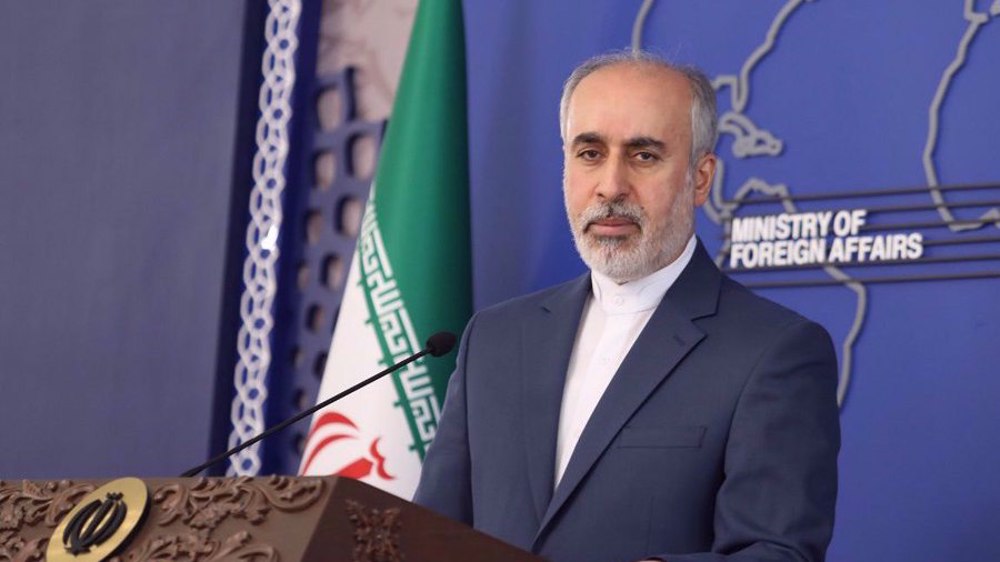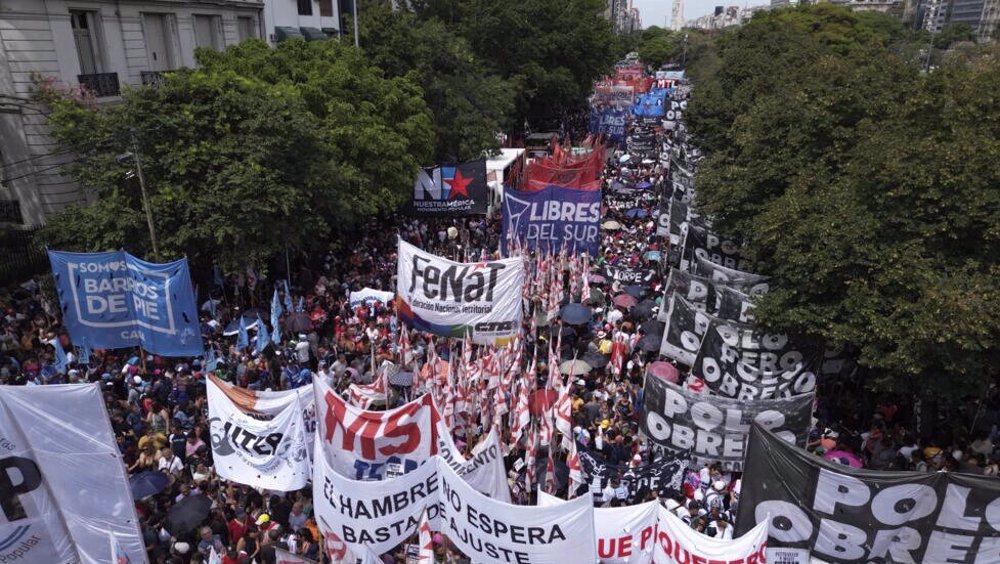Argentine police fire rubber bullets at anti-austerity protesters
Argentine police fired rubber bullets, tear gas and water cannons at protesters who marched on Wednesday in front of Congress against the government's 2019 budget bill, which contains steep spending cuts aimed at erasing the country's fiscal deficit.
Thousands of activists gathered, led by teachers, social organizations and leftist groups opposed to President Mauricio Macri's austerity measures. Small clusters of protesters hurled rocks, sticks and trash at police who shot rubber bullets and used metal barriers to control the crowd.
Some protesters were seen hurling tear gas canisters back at police lines. Authorities were quickly reinforced by a large group of motorcycle police who descended on the crowd.
The same riot control measures were used to push back protesters late last year when Congress approved cuts to Argentina's pension system.

Tensions are rising in Latin America's No. 3 economy, which is projected to contract 2.4 percent this year and 0.5 percent in 2019. Public utility subsidy cuts are forcing home heating and electricity bills higher, fuelling inflation expected to reach 42 percent this year.
The legislators began discussing the budget in a plenary session shortly before noon. Macri needs the budget to pass to maintain his economic adjustment plan and continue efforts to turn Argentina's recession-hit economy around.
As police moved to stem the violence, lawmakers inside the Capitol building squabbled and argued loudly, at times disregarding calls for order.
The budget features sharp reductions in government spending and tax increases aimed at cutting the primary fiscal deficit from a projected 2.7 percent of gross domestic product this year to zero in 2019.
Macri has committed to balancing the budget at the behest of the International Monetary Fund, which signed a $57 billion standby financing agreement with the government earlier this year. Macri went to the fund for help after market jitters about the country's increasing debt load caused a slide in the peso.
The local currency is down about 50 percent so far this year. On Wednesday (October 24) it weakened 1.35 percent against the US dollar. Argentina is in the emerging markets spotlight as it prepares to host a meeting of the G20 at the end of November.
Analysts expect the budget to pass, but are cautious about the government's ability to implement austerity measures. Some economists also fear the government may relax austerity measures ahead of the 2019 presidential election for political gain.
(Source: Reuters)
VIDEO | Former FBI agent criticizes US Congress for 'outright corruption'
IRGC chief urges Muslim countries to cut aid routes to Israel
'New chapter in cooperation': Iran, Venezuela sign new MoUs
Jordan sentences former lawmaker for supporting Palestinian resistance
Basij volunteer forces hold massive drills in southwestern Iran
Israeli war criminals 'not welcome', US city says after ICC ruling
US vetoing of Gaza ceasefire resolution ‘disgraceful’: Iran’s UN envoy
VIDEO | IAEA adopts anti-Iran resolution tabled by E3









 This makes it easy to access the Press TV website
This makes it easy to access the Press TV website